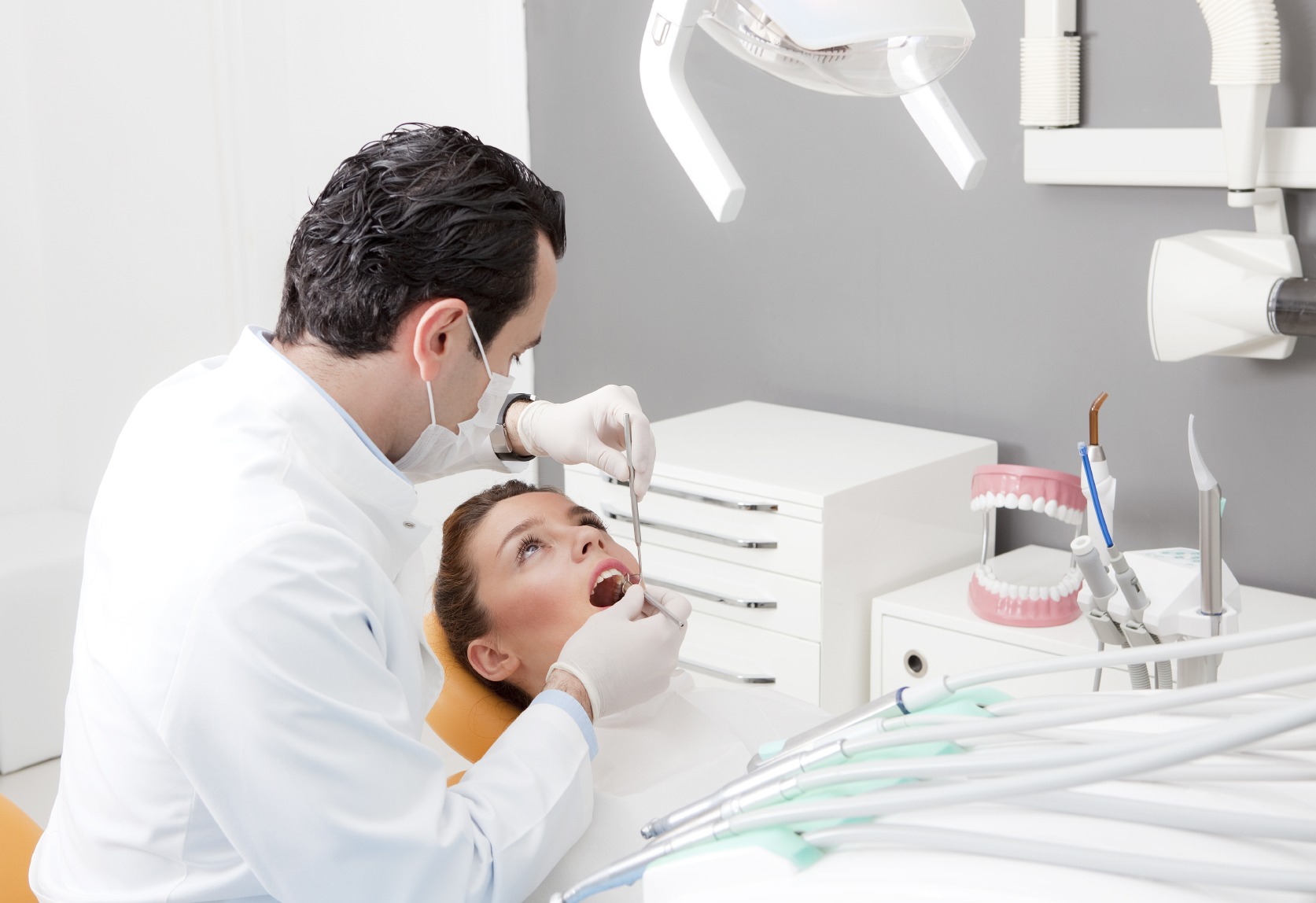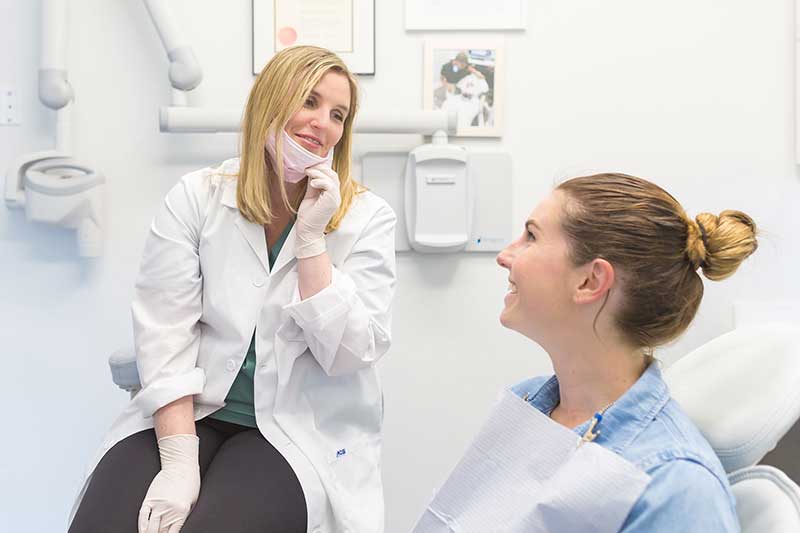How an emergency dentist treats broken braces and implants?

Dental emergencies are common. In fact, statistics show that approximately 22% of people report oral pain within the past 6 months. However, it’s important to note that not every dental issue is an emergency. In order to determine whether you need to visit an emergency dentist or you can wait for an appointment to open up, consider the following:
- Are you in severe pain?
- Are you missing a tooth?
- Do you have a loose tooth?
- Do you have an infection?
- Are you bleeding uncontrollably from your mouth?
As a general rule, if the dental problem requires immediate treatment to alleviate severe pain, save a tooth, or stop significant bleeding, it is an emergency. This also applies to infections, which can be life-threatening if not addressed quickly.
Common Dental Emergencies
Below are some common dental emergencies:
Unexplained toothache
A toothache isn’t something that you should ignore. It is your body’s way of letting you know something is not right in your mouth. If you are experiencing an unexplained, sudden toothache, it’s important to find an emergency dentist as soon as possible. Try the following to relieve the pain until you can get in:
- Cold compress
- Rinse with saltwater
- OTC pain relievers
Swollen, Bleeding Gums
Periodic gum irritation is not necessarily a dental emergency- but if your gums are hurting, swollen, and bleeding, there may be an underlying issue that needs to be addressed. This is not normal and you need to see an emergency dentist as soon as possible.
Swollen Jaw/Mouth
If you experience sudden swelling in your jaw or mouth for no obvious reason, you need to see an emergency dentist. This needs to be addressed immediately, as you could have an infection, irritation to lymph nodes, or other serious conditions.
Exposed Nerves
Exposed nerves need to be addressed immediately by an emergency dentist. This will only worsen if you don’t. Avoiding treatment can result in infections, further damage to the nerves, or more extensive dental issues.
Knocked-Out Tooth
 If you have a tooth knocked out from a hard impact to the face, you need to take immediate action. The American Association of Endodontists says that it’s possible for the tooth to be reinserted and preserved if addressed quickly. In the case of a knocked-out tooth, you should do the following:
If you have a tooth knocked out from a hard impact to the face, you need to take immediate action. The American Association of Endodontists says that it’s possible for the tooth to be reinserted and preserved if addressed quickly. In the case of a knocked-out tooth, you should do the following:
- Pick up the tooth by the crown- don’t touch the root
- Rinse the tooth
- Re-insert into the socket if possible
- If unable to re-insert the tooth, place in a container of milk or water
- Get to the dentist as soon as possible
Missing Filling
If a filling falls out, it may be an emergency because it increases the risk of the tooth breaking or chipping. In some cases, it exposes the nerves, which can result in a variety of other dental issues that require immediate treatment.
Broken Crown
If your dental crown breaks or falls off, the tooth is exposed and vulnerable to damage and infection. This needs to be addressed immediately in order to avoid needing to have the tooth extracted, having a root canal, or having other dental procedures.
Abscessed Tooth
An abscess is a condition in which a pus pocket in a tooth causes infection and could be life-threatening. An abscess could cause:
- Persistent toothache
- Fever
- Tender lymph nodes
- Swelling in face
- Pimple-like bump on gums near infected tooth
This is considered an emergency because the infection may spread to your jaw, the surrounding tissues, and other parts of your body.
Many people ask if broken braces or implants are considered a dental emergency. Keep reading to learn more!
Broken Braces
As a general rule, broken braces are not necessarily an emergency. Braces are made up of brackets, wires, and other parts that may break or loosen. When this happens, it does not necessarily mean you need to rush to the dentist. Common problems with braces include:
Broken braces/wires
If a wire breaks or sticks out and is poking your mouth, try pushing the wire to a more comfortable position. if you can’t do this, use something like a piece of gauze, orthodontic wax, or a small cotton ball to cover the wire until you can get in to see the dentist. You can wait until regular office hours, but it does need to be addressed quickly to avoid injury to your mouth from the wires. While some people might advise you to cut the wire with clean nail clippers, you should not do this because you may end up swallowing it or breathing it into your lungs.
Loose brackets/bands
If you have a loose bracket or band, you can temporarily reattach them with orthodontic wax. You may just want to place the wax over your braces as a cushion. This is not necessarily an emergency- you can wait until regular office hours- but you do need to get in as soon as possible to have this issue addressed. If you have a loose band, save it and schedule an appointment as soon as possible to have it replaced or re-cemented and to have any missing spacers replaced.
Broken Dental Implants
Most people never have an issue with dental implants- but it can happen. However, it does not necessarily mean a dental emergency, but it should be addressed as soon as possible.
Typically, if a dental implant breaks, it’s the crown and not the implant itself. However, it is possible for the implant to break if too much pressure is put on them before the jawbone has fully healed around it. In some cases, wear and tear can cause the abutment- which is the screw that connects the implant to the crown- to break. If your dental implant doesn’t feel right, the abutment may be broken.
The crown that sits on the abutment should be replaced every 15 years or so- but if you chew on ice, use your teeth to open packages, or eat hard foods, you may end up with a broken crown that needs to be replaced.
Common Treatments for Dental Emergencies
There are several different treatment options for dental emergencies. The most appropriate treatment option depends on the situation. If you are experiencing a severe toothache and chipped/cracked teeth, your dentist may need to treat an infection and repair your tooth, which may involve:
- Extraction
- Filling
- Root canal
- Irrigation/antibiotic treatment
If your tooth is loose or has been broken or knocked out, the dentist may need to do the following:
- Filling
- Splinting
- Root canal
- Reimplantation
- Antibiotics
Conclusion
If you are experiencing a dental emergency in Morgan Hill, CA, consider visiting our office, Your Dentistry, to have it addressed. We can fix your dental issue and get you back to normal quickly. Keep in mind that though broken braces and dental implants can be a pain, they are not necessarily a dental emergency. You can schedule an appointment during regular office hours.
Our Location
Your Dentistry
Dental Practice of Dr. H Gondara
795 Cochrane Road, Suite 120,
Morgan Hill, CA 95037
Phone: (408) 520-1782
Email: info@yourdentistrymh.com
Our Hours
Monday 9:00 AM – 6:00 PM
Tuesday 8:00 AM – 5:00 PM
Wednesday 8:00 AM – 5:00 PM
Thursday 8:00 AM – 5:00 PM
Friday 8:00 AM – 5:00 PM
Saturday 8:00 AM – 4:00 PM
Sunday – by Appointment
